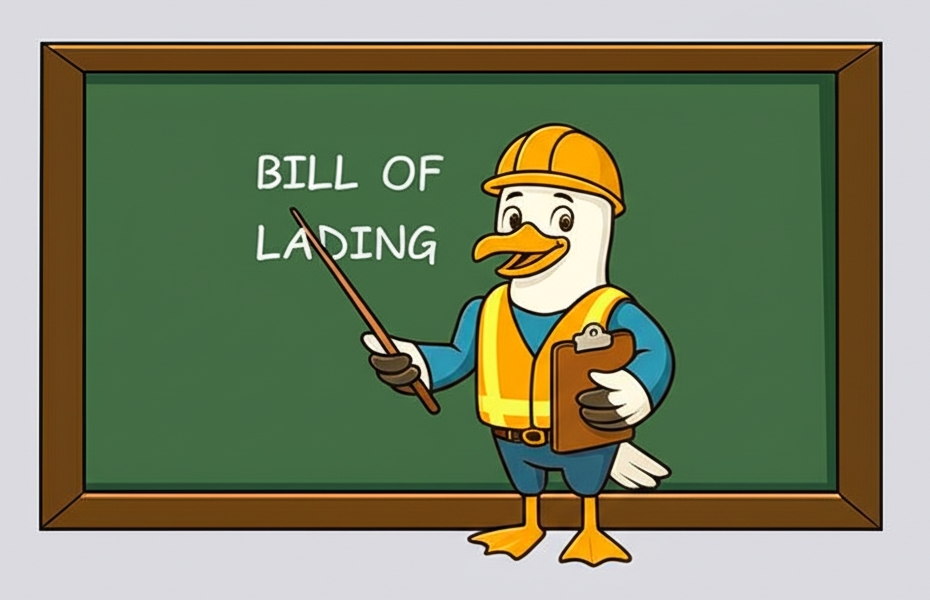If you've ever nodded along in a conversation with your international mover while secretly having no idea what they're talking about—or found yourself googling terms late at night, this guide is for you.
The logistics world runs on jargon. Understanding these terms isn't about impressing people—it's about being empowered to ask better questions, avoid surprise fees and hold your service providers accountable.
We've compiled the most essential shipping terms and translated them into plain English. Bookmark this page—you'll need it.
WHY THIS ACTUALLY MATTERS
Knowledge is leverage. Even with the best moving company, misunderstanding key terms can cost you:
- Surprise fees buried in contract fine print
- Missed updates due to unclear timeline communication
- Confusion when problems arise at ports or customs
- Inability to track your shipment independently
When you know the language, you can ask the right questions and get straight answers.
ESSENTIAL TERMS: A-Z GUIDE
Bill of Lading (BoL)
The legal contract between you and the carrier that spells out what's being shipped, who owns it and where it's going. Guard this with your life—you'll need it for customs clearance and insurance claims.
Container Number
A unique 11-character identifier for your container (e.g. MSKU7465123). This number is your key to independent tracking, so make sure you get it.
Customs Clearance
The government checkpoint where your belongings are reviewed before entering your destination country. Missing or incorrect paperwork here causes major delays and potential fines.
Demurrage
Port storage fees charged when your container sits too long at the terminal before pickup. These charges accumulate daily once free time runs out.
ETA / ETD
Estimated Time of Arrival and Estimated Time of Departure. Helpful but not promises—weather and congestion can shift these dates.
FCL / LCL
FCL (Full Container Load) means your shipment fills an entire container. LCL (Less than Container Load) shares space with other shipments—cheaper but slower and more complex.
Freight Forwarder
The logistics coordinator who arranges your shipment, books vessel space and prepares documentation.
HS Code
A standardized classification number used to describe and tax goods. Getting these wrong can trigger customs delays.
Manifest
The detailed inventory list of everything inside your container. Required for customs clearance and insurance claims.
Port of Loading (POL) / Port of Discharge (POD)
POL is where your container is loaded onto the ship. POD is where it's unloaded at destination—often not the ports closest to your actual cities.
Terminal Handling Charges (THC)
Fees for moving your container on and off ships at the port. Often excluded from initial quotes, so ask if they're included.
ACRONYM CHEAT SHEET
| Acronym | Meaning |
|---|---|
| BoL | Bill of Lading |
| FCL | Full Container Load |
| LCL | Less than Container Load |
| ETA | Estimated Time of Arrival |
| ETD | Estimated Time of Departure |
| POL | Port of Loading |
| POD | Port of Discharge |
| THC | Terminal Handling Charges |
| HS Code | Harmonized System Code |
RED FLAG PHRASES
If you hear these phrases, ask follow-up questions:
- "Port charges not included" – you'll get additional bills later.
- "Subject to space availability" – your container might get bumped to a later vessel.
- "Estimated transit time" – actual transit could be much longer during peak season.
- "Standard customs clearance" – extra fees may appear if anything unusual happens.
- "Door-to-door service" – confirm it includes delivery to your actual address.
HOW STEVE ELIMINATES THE CONFUSION
- Plain-language tracking with clear explanations
- Notifications that tell you what action, if any, you need to take
- Automated documentation when you forward your moving quotes to [email protected]
- Predictive ETAs based on real vessel movements and historical data
QUESTIONS TO ASK YOUR MOVING COMPANY
- What is my container number, and when will I receive it?
- Is this FCL or LCL, and how does that affect my timeline?
- What additional fees beyond the quoted price should I expect?
- Which specific ports will handle my container?
- What happens if my container misses the scheduled vessel?
- How will I receive updates during ocean transit?
THE BOTTOM LINE
International shipping doesn't have to feel like learning a foreign language. When you understand the basics, you can track your shipment independently and avoid expensive surprises.
Ready to move with confidence instead of confusion?
